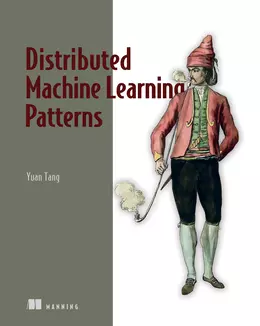Distributed Machine Learning Patterns

eBook Details:
- Paperback: 248 pages
- Publisher: WOW! eBook (January 2, 2024)
- Language: English
- ISBN-10: 1617299022
- ISBN-13: 978-1617299025
eBook Description:
Distributed Machine Learning Patterns: Practical patterns for scaling machine learning from your laptop to a distributed cluster
Distributing machine learning systems allow developers to handle extremely large datasets across multiple clusters, take advantage of automation tools, and benefit from hardware accelerations. This book reveals best practice techniques and insider tips for tackling the challenges of scaling machine learning systems.
Inside Distributed Machine Learning Patterns you’ll learn to apply established distributed systems patterns to machine learning projects—plus explore cutting-edge new patterns created specifically for machine learning. Firmly rooted in the real world, this book demonstrates how to apply patterns using examples based in TensorFlow, Kubernetes, Kubeflow, and Argo Workflows. Hands-on projects and clear, practical DevOps techniques let you easily launch, manage, and monitor cloud-native distributed machine learning pipelines.
Deploying a machine learning application on a modern distributed system puts the spotlight on reliability, performance, security, and other operational concerns. In this in-depth guide, Yuan Tang, project lead of Argo and Kubeflow, shares patterns, examples, and hard-won insights on taking an ML model from a single device to a distributed cluster.
In Distributed Machine Learning Patterns you will learn how to:
- Apply distributed systems patterns to build scalable and reliable machine learning projects
- Build ML pipelines with data ingestion, distributed training, model serving, and more
- Automate ML tasks with Kubernetes, TensorFlow, Kubeflow, and Argo Workflows
- Make trade-offs between different patterns and approaches
- Manage and monitor machine learning workloads at scale
Distributed Machine Learning Patterns provides dozens of techniques for designing and deploying distributed machine learning systems. In it, you’ll learn patterns for distributed model training, managing unexpected failures, and dynamic model serving. You’ll appreciate the practical examples that accompany each pattern along with a full-scale project that implements distributed model training and inference with autoscaling on Kubernetes.